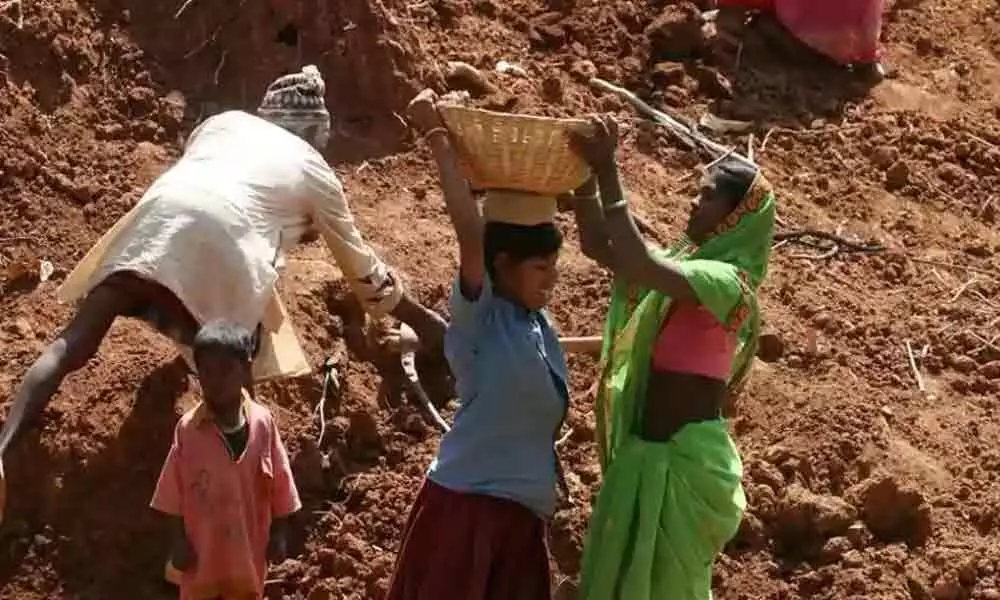Live
- Prakasam police rescues kidnapped toddler within hours
- Time to get rid of Sattavad and Parivarvad politics
- Extend neither spl nor ill treatment
- Must-Watch OTT Originals in 2024: The Year’s Best Shows and Movies
- 40 Indian startups secure over $787 mn in a week
- India now formidable force on chess board
- Raghavendra Mutt pontiff visits Tirumala
- Whistleblower of OpenAI found dead in US apartment
- Trump’s US-first policy & India’s strategic latitude
- Chandrababu pays tribute to Potti Sriramulu and Sardar Vallabhbhai Patel
Just In

MGNREGA workers
Average income of Mahatma Gandhi National Rural Employment Guarantee Act (MGNREGA) workers doubled during Coronavirus lockdown, a CRISIL report says.
Average income of Mahatma Gandhi National Rural Employment Guarantee Act (MGNREGA) workers doubled during Coronavirus lockdown, a CRISIL report says. The average income per month for unskilled workers under the MGNREGA nearly doubled to around Rs 1,000 per month during the first four months of the current fiscal, the report said.
"The April-July period typically sees 25% greater work execution (in terms of person-days) under the scheme compared with the rest of the fiscal, thereby aiding rural income," Crisil said in its report. However, the April-July period of the current fiscal witnessed 46 per cent growth in work execution (in terms of person-days) under the scheme.
The report says the average per day wage increased by 12 per cent during the period under review. As per the report, the primary reason for the government's thrust on MGNREGA was the COVID-19 pandemic, which has pushed migrant workers back into their villages. The push to the scheme has been higher in Haryana, Uttar Pradesh, Bihar, West Bengal, Odisha and Gujarat, where work allocation increased more than 50 per cent in the first four months.
The government has allocated Rs 61,500 crore for this scheme under Union Budget 2020-21 and later increased the allocation by Rs 40,000 crore amid the pandemic to support the rural economy. Of the Rs 101,500 crore, Rs 11,500 crore has to be spent on clearing pending dues of fiscal 2020, thus leaving Rs 90,000 crore for the current fiscal.
Even after considering the revised allocation, more than 50 per cent of the funds have been spent in the first four months of the fiscal, the report said.
MGNREGA has the mandate of providing at least 100 days of wage employment in a financial year to every rural household whose adult members volunteer for unskilled manual work. It has been a key mechanism of employing the rural labour force.

© 2024 Hyderabad Media House Limited/The Hans India. All rights reserved. Powered by hocalwire.com







